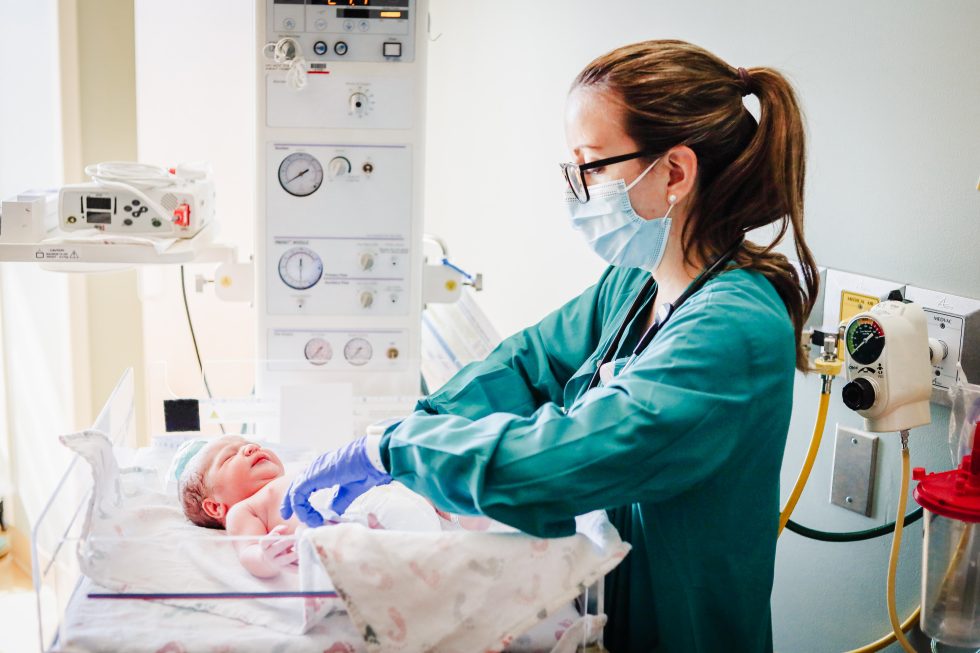Pre-Nursing
 Asbury University offers a major in Pre-Nursing, which provides options to students interested in pursuing a career in nursing. Students may complete an Asbury University degree by transferring to and completing credits at an approved School of Nursing in their fourth year. Students take a prescribed course of study (PNR) and the Foundations courses at Asbury University. The PNR major must transfer to an accredited 4-year School of Nursing. Upon completing 30 credits of professional nursing courses, the credits must be transferred back to Asbury University to complete the Bachelor of Arts degree in Pre-Nursing. Asbury has arrangements with the UK College of Nursing, the EKU School of Nursing, and with the IWU School of Nursing for accepting qualified Asbury students, but students may attend other nursing schools to complete the nursing credits.
Asbury University offers a major in Pre-Nursing, which provides options to students interested in pursuing a career in nursing. Students may complete an Asbury University degree by transferring to and completing credits at an approved School of Nursing in their fourth year. Students take a prescribed course of study (PNR) and the Foundations courses at Asbury University. The PNR major must transfer to an accredited 4-year School of Nursing. Upon completing 30 credits of professional nursing courses, the credits must be transferred back to Asbury University to complete the Bachelor of Arts degree in Pre-Nursing. Asbury has arrangements with the UK College of Nursing, the EKU School of Nursing, and with the IWU School of Nursing for accepting qualified Asbury students, but students may attend other nursing schools to complete the nursing credits.
Nursing Partnerships
Contact the Health Professions Advisor for more information on nursing partnerships.
University of Kentucky College of Nursing – Traditional BSN & Accelerated BSN (online)
Through the Dual Degree Nursing Program agreement with the University of Kentucky College of Nursing, students can complete a Bachelor of Arts in Pre-Nursing from Asbury and a Bachelor of Science in Nursing from UK. Participating students take the prescribed course of study at Asbury, including the Foundations courses, and then transfer to UK. To complete the Asbury University degree in Pre-Nursing the first 30 credits of nursing courses from UK must be officially transferred to Asbury University upon completion. Entrance requirements for the UK College of Nursing must be met, and spaces are limited.
Eastern Kentucky University School of Nursing – Traditional BSN
Students can complete a Bachelor of Arts in Pre-Nursing from Asbury and a Bachelor of Science in Nursing from Eastern Kentucky University (EKU). Participating students take the prescribed course of study at Asbury, including the Foundations courses, and then transfer to EKU. To complete the Asbury University degree in Pre-Nursing the first 30 credits of nursing courses from the EKU School of Nursing must be officially transferred to Asbury University upon completion. Entrance requirements for EKU Nursing must be met, and spaces are limited.
Indiana Wesleyan University School of Nursing – Traditional BSN
Students can complete a Bachelor of Arts in Pre-Nursing from Asbury and a Bachelor of Science in Nursing from Indiana Wesleyan University. Participating students take the prescribed course of study at Asbury, including the Foundations courses, and then transfer to the IWU School of Nursing. To complete the Asbury University degree in Pre-Nursing the first 30 credits of nursing courses from Indiana Wesleyan must be officially transferred to Asbury University upon completion. Entrance requirements for the IWU School of Nursing must be met, and spaces are limited.
Other Schools
Students may transfer to other approved nursing schools, although there is no agreement on admission or programs at these other schools. The Asbury University degree is completed by the official transfer of the first 30 credits of nursing courses. Degrees and requirements for the other nursing schools vary. The school must be approved for use in the Pre-Nursing degree program.
Students may complete the Pre-Nursing requirements and seek admission to a nursing program without completing Asbury’s three year Pre-Nursing curriculum and Foundations requirements. This option will not lead to a degree from Asbury, so no transfer of nursing courses is needed.
Students declaring any major at Asbury may complete Pre-Nursing requirements without declaring the PNR major. There are program restrictions, so students are directed to contact the Health Professions Advisor for more information.
What is Nursing?
Nurses provide direct patient care by observing, assessing and recording symptoms, reactions and progress, which provides the basis for care planning and intervention. Registered Nurses (RNs) also develop and manage nursing care plans, instruct patients and their families in proper care and help individuals and groups take steps to improve or maintain their health. Registered nursing requires a large base of knowledge in order to assess, plan and intervene to promote health, prevent disease and help patients cope with illness. While state laws govern the scope of nursing practice, it is usually patient needs that determine a nurse’s daily job activities.
In addition, nursing has four advanced practice clinical professions, each of which requires a graduate degree and separate certification:
ExploreHealthCareers.org links
▾ What prerequisites are typically required for applying to nursing school?
Most BSN nursing programs require applicants to complete specific courses before admitting students into the program, including courses in Chemistry, Biology, Anatomy, Physiology, Microbiology, Psychology and Statistics.
▾ What major should I choose?
To become a nurse, you must first achieve certification as a Registered Nurse (RN). To do that, the first step is to earn a Bachelor of Science in Nursing (BSN) degree. While you may also choose to earn a nursing diploma or associate degree, which takes three years, a BSN will make it easier for you to find a job. Currently 55% of the nursing workforce holds a baccalaureate degree or higher. Recent research indicates that patients are safer and have better outcomes when they are under the care of nurses with at least a baccalaureate-level education in nursing.
Most BSN nursing programs require applicants to complete specific courses before admitting students into the program, including courses in Chemistry, Biology, Anatomy, Physiology, Microbiology, Psychology and Statistics. Asbury University students can earn a B.A. degree from Asbury and a BSN degree from a School of Nursing by completing the Pre-Nursing (PNR) major. Asbury has agreements with 2 nursing schools that will accept Asbury Pre-Nursing students who have met specific requirements. Read about guaranteed acceptance of Asbury’s Pre-Nursing students to nursing school.
Another option is for a student to complete a 4 year degree in a different major other than Pre-Nursing while still completing prerequisite courses for nursing school. The student may then choose to apply to a “second-degree BSN program” offered by many nursing schools.
Your career prospects will be better if you hold a BSN, as many employers recognize that nurses with bachelor’s degrees are better prepared for a wide range of practice settings and tend to have strong skills in critical thinking, case management and health promotion.
Once you graduate, you will have to take and pass the NCLEX-RN, a national licensing exam, to practice as a Registered Nurse.
General Timeline
▾ Years 1 – 3
Take specific prerequisite courses for nursing school; complete all Foundations requirements and electives.
▾ Year 3 (spring)
Apply to transfer to an accredited nursing program; request letters of recommendation from professors; send copies of all college transcripts; gain acceptance(s).
▾ Year 4 +
Complete nursing school requirements; transfer 30 nursing credits back to Asbury to complete the PNR major and Asbury BA degree.
Asbury Pre-Nursing Students and Alumni
 “I’ve enjoyed the relationships I’ve been able to build with professors like Dr. [Vins] Sutlive, Dr. [Bruce] Branan, and Dr. [Marvin] Ruffner,” said Asbury Pre-Nursing student Paige Wall ’24. “Their Christian outlook on nursing has helped me as I have worked as a nurse aide in geriatrics at Wesley Village. After I graduate with my BSN, I plan to work in labor and delivery.”
“I’ve enjoyed the relationships I’ve been able to build with professors like Dr. [Vins] Sutlive, Dr. [Bruce] Branan, and Dr. [Marvin] Ruffner,” said Asbury Pre-Nursing student Paige Wall ’24. “Their Christian outlook on nursing has helped me as I have worked as a nurse aide in geriatrics at Wesley Village. After I graduate with my BSN, I plan to work in labor and delivery.”
Contact Dr. Bruce Branan, Asbury’s Advisor for the Health Professions, for more information and help in preparing for a career in nursing.